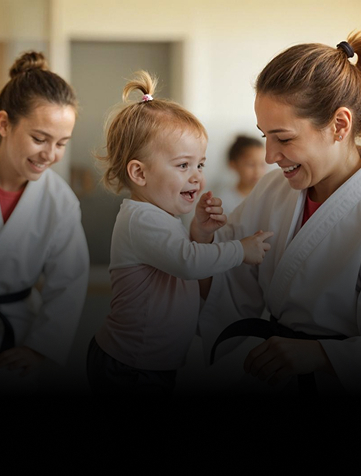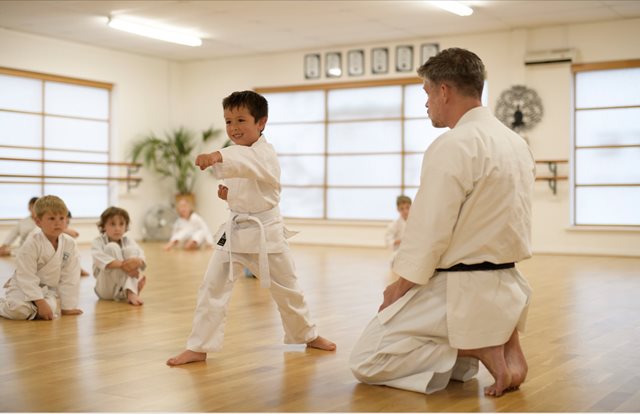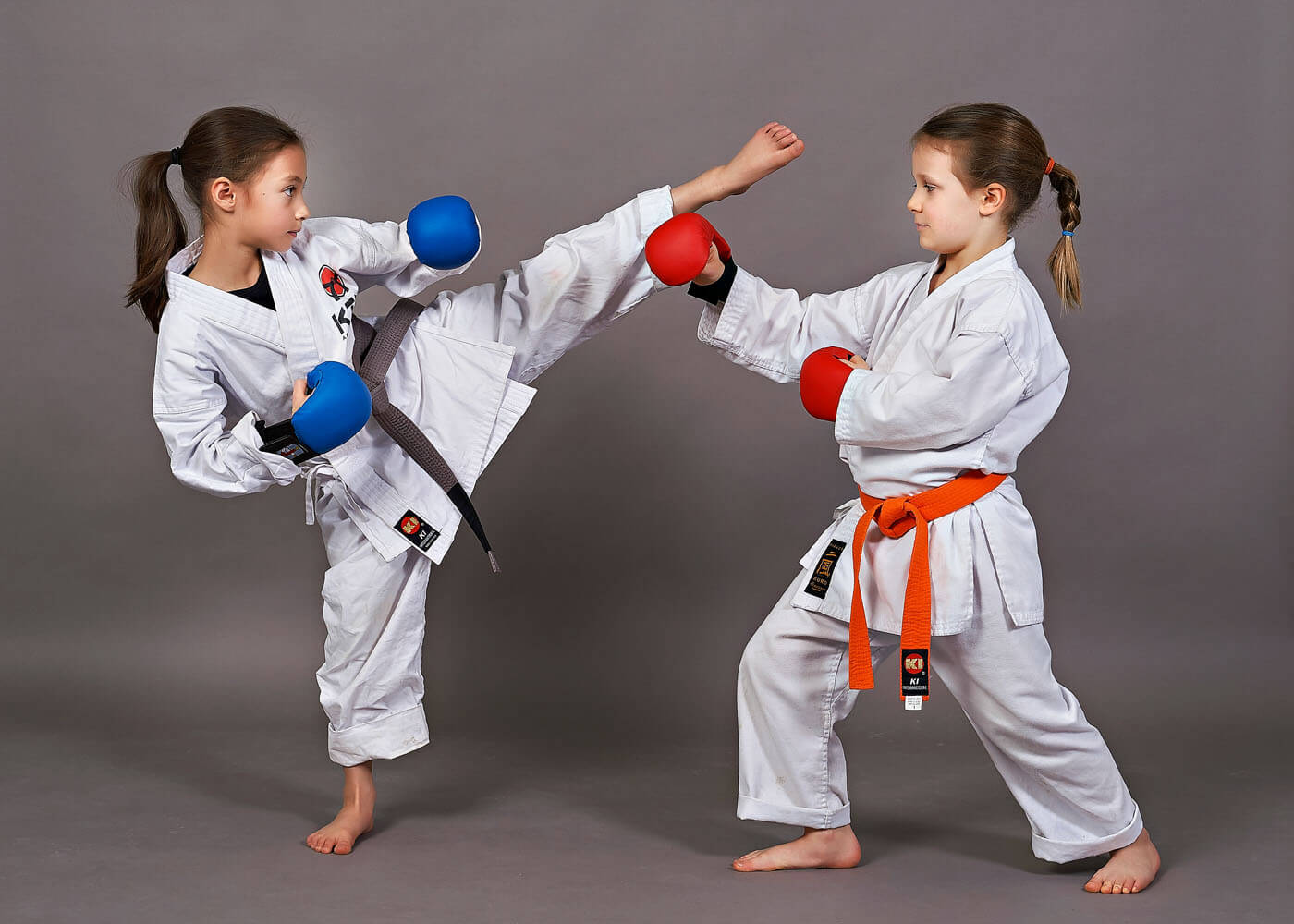Exactly How Karate for Kids Can Increase Confidence and Discipline in Young Martial Artists
Karate for children supplies an unique possibility to construct confidence and discipline in young martial artists. As they discover new techniques and face difficulties, they not only acquire abilities yet additionally develop a strong sense of self-respect. This organized atmosphere urges them to respect the journey of improvement. How does this training translate into their everyday lives? Discover the deeper connections that make karate more than simply a sporting activity.
The Importance of Confidence in Childhood Development
Confidence is a crucial structure block in childhood years growth. When you nurture your child's self-confidence, you equip them to face challenges, take dangers, and reveal themselves easily. Youngsters with self-confidence are extra willing to explore social circumstances and brand-new tasks, which can lead to enduring relationships and important experiences.Encouraging your youngster to get out of their comfort zone cultivates resilience. They find out that failing isn't the end but instead a tipping stone to success. By celebrating their success, despite exactly how little, you help them identify their capacities and worth.In this trip, assistance and positive support from you play an essential duty. Whether it's with praise or just existing, your involvement improves their confidence. As they grow, this confidence ends up being a lifelong asset, equipping them to browse both difficulties and opportunities with a solid sense of self.
How Martial Arts Instructs Discipline and Emphasis
Martial arts helps you build self-control and focus through its structured training regimen. As you exercise mindfulness throughout each session, you'll learn to focus better both on and off the floor covering. And also, establishing and attaining objectives in karate enhances your capacity to stay dedicated and mindful.
Structured Training Regimen
While you involve in karate training, you'll promptly discover exactly how an organized regimen imparts self-control and emphasis in young professionals. Each course adheres to a details layout, including warm-ups, method method, and sparring. This consistency shows you to commit and value the process to renovation. As you discover methods and forms, you create a sense of responsibility for your very own progress.The structured setting urges you to set objectives, whether mastering a new belt or improving a kata. You'll find that remaining focused throughout classes and drills develops your focus. The technique you cultivate in karate extends past the dojo, positively affecting your schoolwork and daily regimens. Each session reinforces the value of dedication, aiding you become a much more regimented person.
Mindfulness in Practice
As you practice martial arts, you'll discover that mindfulness becomes a crucial part of your training. Each action requires your full interest, assisting you stay concentrated on the here and now moment. You'll find out to disregard distractions and focus on your breathing, activities, and intentions. This increased recognition develops your reflexes and improves your discipline.During sparring or forms, you'll find the significance of being mentally existing - Karate Salisbury MD. You'll observe just how this emphasis not only boosts your method but additionally develops your confidence. By exercising mindfulness in martial arts, you cultivate persistence and resilience, vital characteristics that extend beyond the dojo. In this way, martial arts instructs you to harness your mind, aiding you establish a disciplined strategy to obstacles both on and off the mat

Personal Goal Setting Techniques
Setting goals in karate isn't almost making belts; it's a powerful way to grow discipline and focus. When you establish details, achievable targets, you develop a roadmap for your progression. Instead of simply intending to enhance your kicks, try focusing on understanding a certain technique each month. This method keeps you determined and engaged.Breaking down bigger goals into smaller sized, convenient steps aids you track your progression and celebrate small triumphes in the process. Whether it's developing your position or raising your sparring endurance, every objective strengthens your commitment. As you achieve these objectives, you'll develop confidence in your abilities and establish a solid sense of technique that prolongs beyond the dojo right into everyday life.
Structure Durability Through Martial Arts
Fighting style, especially karate, uses kids an unique possibility to construct durability in a supportive setting. In classes, they encounter difficulties that press their limitations, whether it's understanding a new strategy or sparring with a partner. Each obstacle, like a missed kick or a shed suit, ends up being an opportunity to learn and grow.As they exercise, kids discover to welcome discomfort and maintain trying, also when points get hard. They uncover that failure isn't completion; it becomes part of the journey. This attitude helps them recover more powerful, not just in the dojo, however in day-to-day life.With each difficulty they get over, your child develops self-confidence in their ability to tackle challenges, sustaining their determination. With karate, they'll recognize that strength isn't just about physical stamina; it's regarding psychological grit and willpower, encouraging them to encounter whatever life tosses their means.
The Role of Respect in Karate Training
Respect is a fundamental concept in karate training, fostering a culture of discipline and friendship amongst pupils. When you step onto the dojo flooring, you're not just learning methods; you're also learning to respect your instructors, peers, and the art itself (Karate Salisbury MD). Bowing at the beginning and end of course isn't simply a rule; it represents your acknowledgment of others' efforts and dedication.As you establish mutual respect, you'll find it enhances your discovering experience. You'll pay attention a lot more attentively to your trainer and gain insights from fellow students. This environment encourages constructive criticism and assistance, permitting everyone to expand together.Moreover, regard grows self-discipline. Acknowledging the worth of effort and humbleness helps you stay concentrated on your training. Consequently, this regard translates right into your everyday life, improving your communications and partnerships outside the dojo. With martial arts, you learn that regard is necessary for individual growth and area structure
Establishing Goals and Attaining Success in Martial arts

Social Abilities and Team Effort in the Dojo
While training in the dojo, children naturally create necessary social abilities and teamwork abilities. As they practice together with peers, they discover to interact efficiently, share area, and support one another. Each class provides opportunities for cooperation, whether it's during companion drills or team exercises. This team effort promotes friendships and produces a feeling of belonging, making the dojo a nurturing environment.Kids additionally get useful conflict resolution skills. When they come across difficulties, such as disputes throughout sparring, they learn to browse these circumstances constructively. They exercise persistence and compassion, understanding that every person has different toughness and weaknesses.Moreover, taking part in team activities grows a sense of responsibility. You'll see your child discovering to depend on teammates and take duty for their role in a team. These experiences not only boost their martial arts trip but likewise outfit them with social tools they'll bring right into other locations of life.

The Long-Term Conveniences of Martial Arts Beyond Childhood Years
As youngsters expand up and change right into the adult years, the benefits of martial arts expand much past the dojo. You'll discover that the self-control and focus discovered with karate can translate into your specialist and scholastic life. Setting and achieving goals in fighting styles cultivates a solid job principles, which can push you to stand out in any type of endeavor.Moreover, the confidence acquired from sparring and grasping strategies can boost your self-esteem, helping you tackle difficulties head-on. This durability comes to be indispensable as you encounter the uncertainties of adulthood.Additionally, the social abilities established through team effort and camaraderie in the dojo can result in much better relationships in both individual and expert spheres. You'll find out to communicate effectively, willpower disputes, and build a supportive network.Ultimately, karate forms not simply knowledgeable martial musicians, but all-round individuals all set to tackle the world.
Frequently Asked Inquiries
What Age Is Best to Beginning Karate for Children?
You can start karate as very early as age four or 5, however it frequently relies on your kid's maturation and rate of interest. Finding a course that suits their age and energy level makes a large distinction.
Are There Any Kind Of Health And Wellness Conveniences From Exercising Karate?
Yes, exercising karate offers various health and wellness advantages. You'll improve your control, stamina, and flexibility while increasing cardiovascular fitness. Plus, it improves emphasis and psychological health, making it a great selection for total physical and mental health and wellness.
Just How Frequently Should Youngsters Participate In Martial Arts Classes?
You need to motivate your kids to attend karate classes at the very least a couple of times a week. Uniformity aids them learn techniques successfully and establish skills, making their experience more delightful and visit this site rewarding in the lengthy run.
Can Karate Assist With Managing Anxiousness in Kid?
Yes, martial arts can assist handle stress and anxiety in kids. It shows emphasis and self-constraint while providing a secure outlet for energy. You'll observe your youngster expanding more positive and calm as they why not check here practice routinely.
What Gear Is Required for Kids Beginning Karate?
